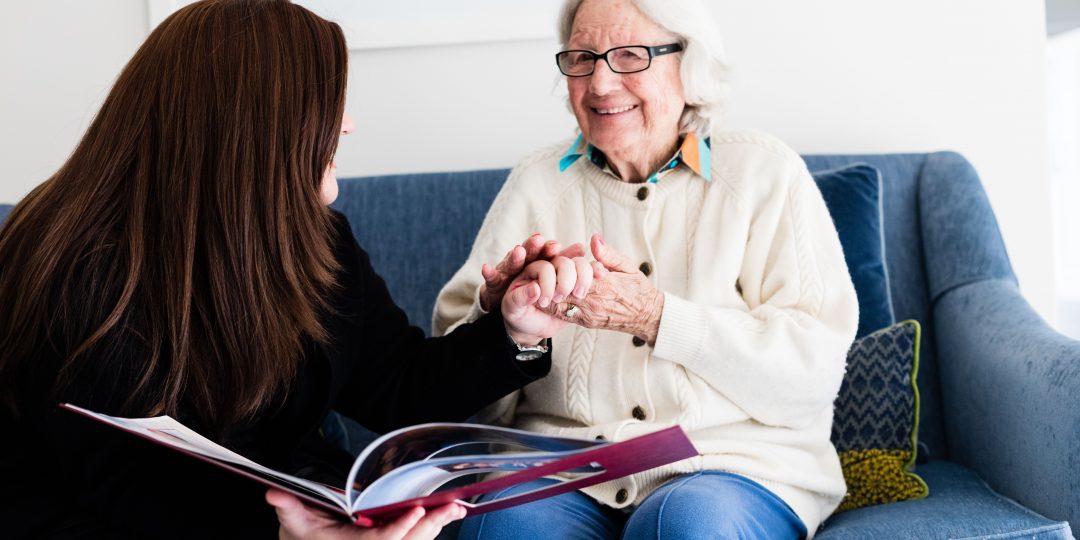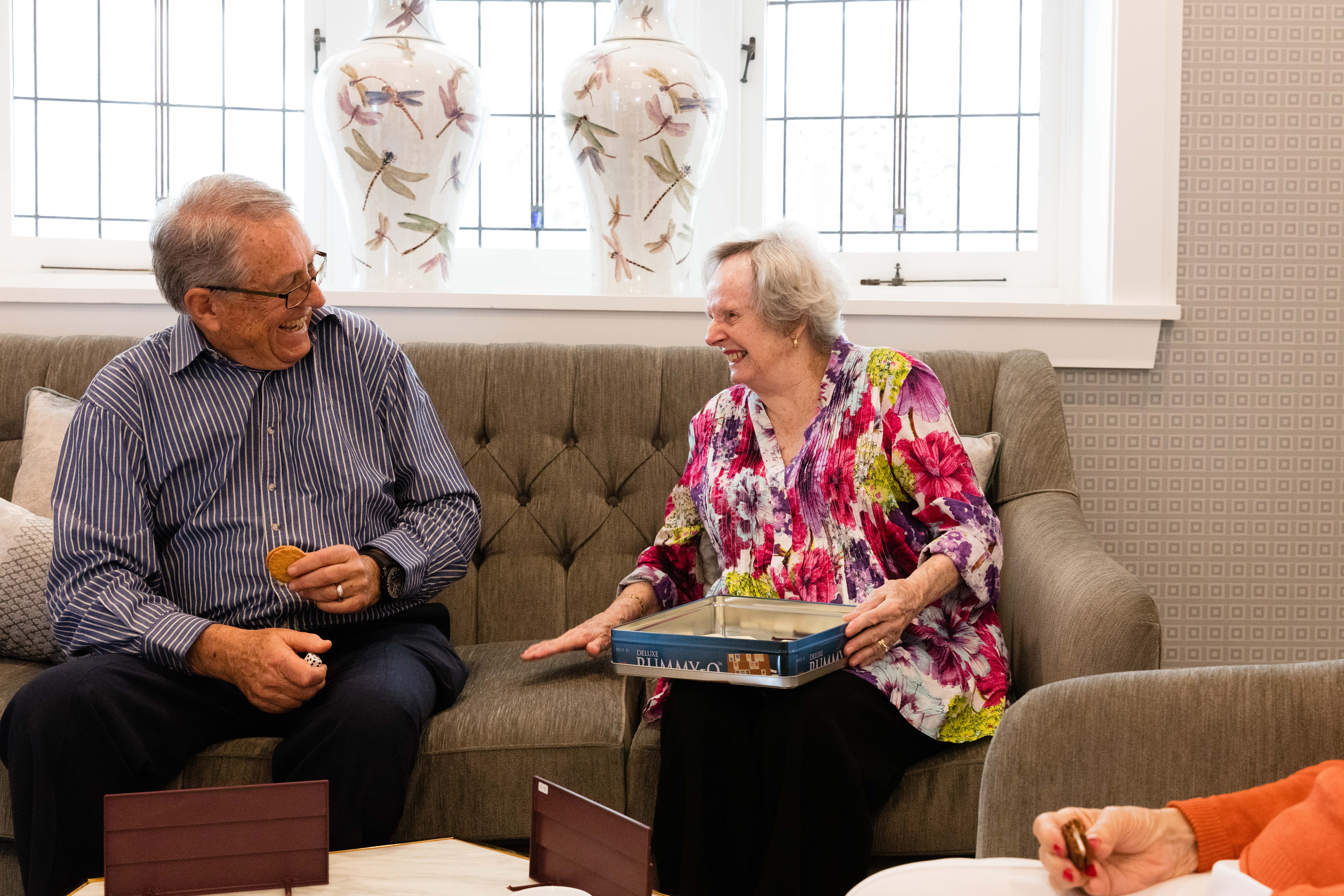Strategies for Creating Joy, Purpose, and Meaning for you and your loved one living with dementia.
Are you caring for someone living with dementia? Have you wondered how the holiday season will play out, and how the stress and changes in routine will affect you both? Many people consider the holidays one of the most stressful times of the year.
Between family get-togethers, cooking, and shopping, even people living with a healthy brain can start to feel burned out. But, for a person that is living with brain changes, the changes to their routine can feel overwhelming, too. So, what can you do to try to help you both have a better holiday experience?
Below are five (5) tips for you to try:
1. Smaller, simpler, shorter
To help reduce stress, you may want to consider simplifying your gatherings. What can you let go of, or minimize in a way so it still sparks joy without the added stress? Can you identify the essentials, and eliminate the rest? You can simplify the gatherings by cutting out any unnecessary stress, and focus on creating moments of joy and connection.
2. Focus on strengths and abilities
When a person is living with dementia, the changes to their brain will impact the person’s abilities over time. However, it is important to realize that the changes happen over a period of time and are not sudden. What that means for you, effectively, is that there are opportunities for you to engage your loved one, focusing on the abilities they still possess rather than focusing on the loss and changes from last Christmas to now. Create moments of joy by using photos or videos to talk about stories and old memories. If you don’t have photos handy, you could use an object or Google an image of a place or time they tend to associate positive memories with to help spark a conversation. You could also play a few songs the person likes, or even create a music playlist in advance.
3. Avoid corrections
Correcting someone can lead to feelings of shame and vulnerability. Like saying to the person living with dementia “that’s not how this story happened, or that’s not what he said at all?” Yes, maybe the story really happened differently. And yes, maybe the person’s recollection of a prior conversation isn’t quite correct. But, if no one suffers real harm from an incorrect comment, does it really matter? Is correcting the person, on the chance of making them feel bad and hurting your relationship, really that important?
Remember this may be their new reality.
4. Accept general comments
As a person is living with dementia, their communication will become vague as the disease progresses. For you as the care partner, it is important to remember that they’re doing the best they can with what they have left. So, instead of pushing for specifics, consider if their general comment may be enough. If you do need more detailed information, try to avoid asking open-ended questions. Try controlled choice, for example; “would you like tea or coffee?”, rather than, “what would you like to drink?”.
5. Give room to get away if needed
When a person is living with dementia, the hustle and bustle of holiday celebrations can get particularly overwhelming. If you have other family members or friends visit, consider letting your love one living with dementia sit on the edge of the table, instead of the center. This way, the person may only have one person talk to them at a time for less sensory input, and give them space to get away if it becomes too much or they get tired.
In addition, consider where in your home you can offer a quiet space for the person to get away to or spend a little time to quietly relax and recharge.
Conclusion
The holiday season can be stressful even when dementia isn’t part of life. If, however, a person you care about is living with the condition, some alterations to your usual holiday tasks and activities may benefit everyone.
See how and where you can simplify your celebrations, and look for opportunities to engage the person while allowing them to use the abilities they still have. Celebrate in the moment and cherish the time you have together rather than focusing on the loss. Try to resist the temptation to directly correct the person living with dementia, and embrace general comments or offer choices to gather the information that you do need.
While it can be easy to fall into your long-standing holiday habits, simplifying things and being more intentional about your choices can positively impact the experience for everyone involved. And by choosing not to do things that matter less, you’re allowing more time and opportunity for the things that truly matter — creating cherished, meaningful moments with those closest to your heart.
Is it time to consider permanent care?
There is never a right or wrong answer to this question. Our “Question and Answers” are for people living with dementia and for the loved ones supporting them as they consider permanent care, residential aged care, home and community care or a nursing home. Please connect and share your details and take our Q&A to help you decide what to do next.
If we can assist with answering any further questions, please don’t hesitate to contact our Engagement Manager for support on (1300) Show Number
Dance to your own rhythm: Every person living with dementia will do it differently. It’s like a dance.
We understand when a loved one receives a diagnosis, it doesn’t just affect them. There is a huge impact on their support network. We have created a new resource which includes helpful advice for care partners.






0 Comments